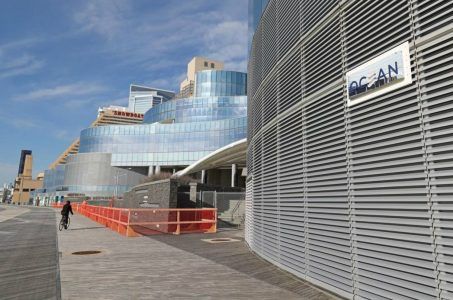Toxic ‘Third-Hand’ Smoke Lingers in Casinos Long After Bans Are Enacted, Says Study
Posted on: February 11, 2018, 02:00h.
Last updated on: February 9, 2018, 06:54h.
Smoking bans may have cleared the perennial fog hanging above the slot machines at your local casino, but a new study by San Diego State University (SDSU) suggests that lung-torturing “third-hand smoke” lingers for months after the bans come into force, and those industrial-strength air ventilation systems don’t appear to make much difference, either.

What’s third-hand smoke? It’s the toxic build-up of residue that gathers in dust particles on walls, carpets, and furniture in areas that have endured decades of tobacco smoke onslaughts. And it contains a potent lung carcinogen known as NNK.
Casinos are almost unique in the modern age in that they are one of the few remaining environments where a huge amount of smoking still occurs, sometimes for 24 hours a day, 365 days a year, and for decades on end.
If Walls Could Talk
“Over years … , layers of smoke residue stick to surfaces and penetrate deep into materials,” said lead study author Georg Matt.
“If you work at a casino that allows smoking or are a guest, you already know you inhale second-hand smoke every time you breathe. [But] because the tobacco smoke residue remains long after a smoking ban, you will continue to get exposed [to third-hand smoke] even after the second-hand smoke has disappeared.”
Casinos are perfect environments in which to study the phenomenon. So when the Win-River casino in Redding, California announced a smoking ban in 2014, researchers at SDSU jumped at the opportunity to analyze the half-life of third-hand smoke.
Academics took samples from eight areas inside the casino before the ban was set in motion, and then again on six occasions after the ban had been instituted. They also examined fingers and urine of participating non-smokers who visited the casino, comparing the samples with those of non-smokers who had just moved into homes which had also been inundated with years of tobacco smoke.
Hanging Around
While the study found that air quality immediately improved after the smoking ban went into effect, third-hand smoke remained at high levels — much higher, in fact, than in the former smoking homes — which suggests that powerful casino air ventilation systems did not have much effect in removing toxins.
Matt believes that only by intensive surface cleaning, and possibly even replacing walls, can casinos truly make their environment significantly safer for guests.
Uronically, researchers were not able to continue their work beyond 11 months time. At that point, the casino reluctantly rescinded its smoking ban following a deluge of customer complaints.
Related News Articles
Boyd Gaming Completes Cannery Acquisition
Ocean Resorts to Bring Hyatt Hotel Brand to Atlantic City
Reputed Kansas City Mob Figure Banned from Nevada Casinos Dies of COVID-19
Most Popular
Mirage Las Vegas Demolition to Start Next Week, Atrium a Goner
Where All the Mirage Relics Will Go
Most Commented
-
Bally’s Facing Five Months of Daily Demolition for Chicago Casino
— June 18, 2024 — 12 Comments
















No comments yet